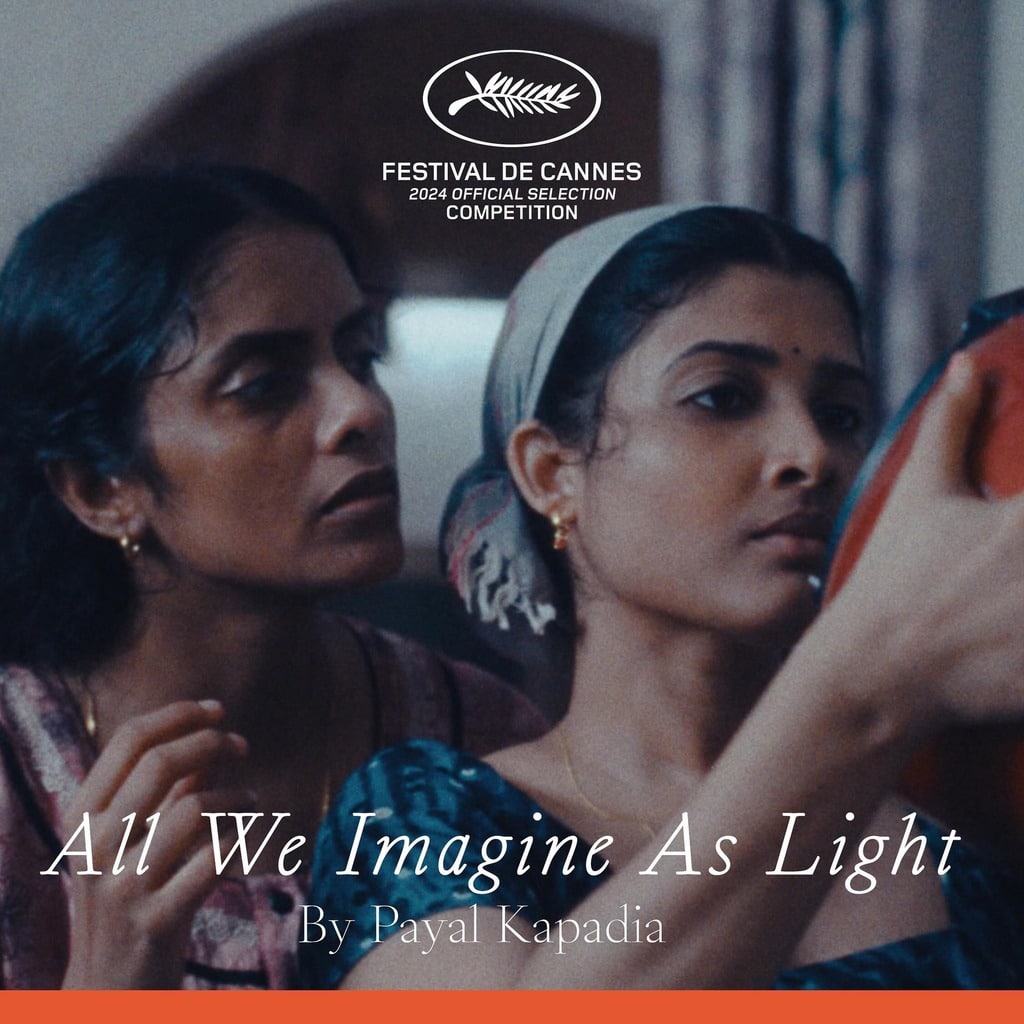




Dir/Wri: Payal Kapadia | Cast: Kani Kusruti, Divya Prabha, Chhaya Kadam, Hridhu Haroon | India Drama 110′
Writer-director Payal Kapadia‘s Mumbai set feature All We Imagine As Light is the first Indian film to compete for the Palme d’Or in nearly three decades; an impressive achievement for a first time filmmaker, especially an Indian woman. The last time an Indian film made it into the main competition was Shaji N Karun’s Swaham in 1994. Sadly it went home empty-handed losing out to Quentin Tarantino’s Pulp Fiction. Kapadia, however, is not new to Cannes. Her poetic yet powerful documentary, A Night of Knowing Nothing, was the winner of Golden Eye for best documentary during the 2021 edition of Cannes Film Festival.
Unfolding in two parts and shifting deftly from realism to reverie All We Imagine As Light is about two women caught in impossible love stories in modern day Mumbai. Prabha, a nurse, shares a flat with Anu, yet they hardly know each other and are further constrained from forming a friendship due to shameful secrets that trap them from sharing their personal lives. Both women are disappointed by love, for differing reasons, and this emotional claustrophobia pervades the first part of the drama.
Anu, a Hindu, is in love with a Muslim man and forced to conceal her relationship due to societal constraints. All the two of them want is to make love but this is frowned upon even nowadays. Prabha is caught in an arranged marriage with a man who has since disappeared back to his village. One day, out of the blue, a rice cooker arrives in the post, supposedly from her estranged husband. This innocent gift sends Prabha into a deep depression, opening up fresh wounds of romantic disillusionment and upsetting her emotional equilibrium once again. She is a married woman constrained by all the ties that it implies, but leaving her lonely and emotionally frustrated.
The second part of film brings an uplifting almost dreamlike tonal shift that sees the women freed from their inertia when they set off on a road trip to a beach town where a mystical forest creates a space for the womens’ dreams to be unleashed. Kapadia’s film touches on traditional themes of abandonment, religious intolerance, female friendship and sexual liberation that are still all too relevant in today’s India with its impressive technical and financial advances. Yet despite all this, many women are still sadly stuck in the dark ages, while in the West men are enjoying the freedoms of gay marriage, gay fatherhood, and sexual transitioning. A thoughtful, richly thematic and beautifully captured film with two sensitive performances from leads Kani Kusruti and Divya Prabha. @MeredithTaylor
CANNES FILM FESTIVAL 2024